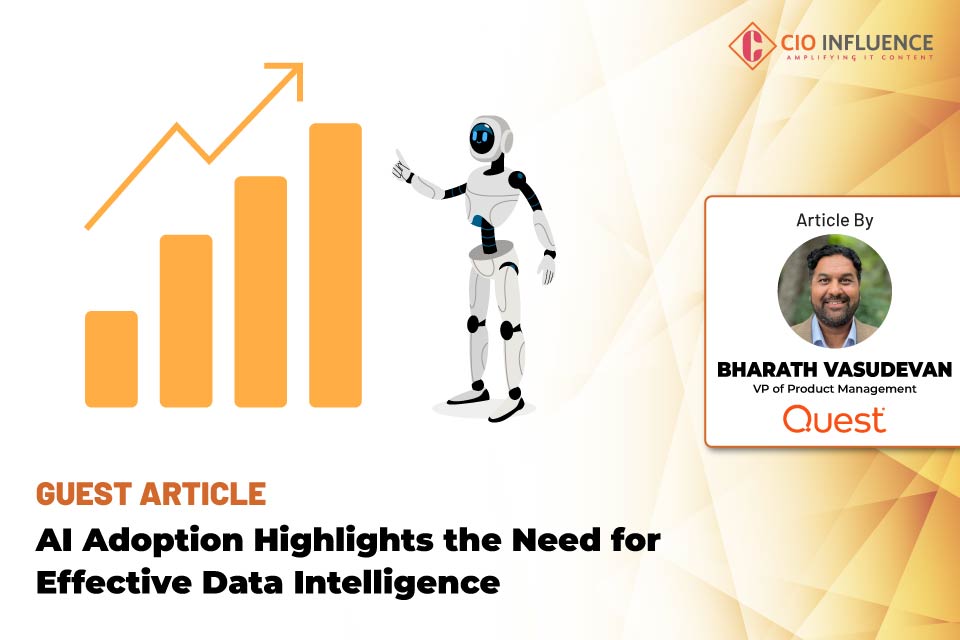Rising interest in the adoption of Artificial Intelligence (AI) applications is shifting data management technology priorities, according to the latest “State of Data Intelligence” report from Quest Software. Companies are embracing data intelligence best practices as they quickly realize that the effectiveness of AI applications depends entirely on data.
Strategic Shifts in Data Intelligence
The State of Data Intelligence report reveals that AI application development impacts multiple parts of data intelligence strategies. For example, organizations clearly understand that strong metadata management and understanding is crucial to ensuring sound data for effective AI solutions; subsequently, metadata harvesting, classification and curation jumped as a priority. In fact, 31% of respondents cited metadata management as the most impactful data intelligence initiative, nearly doubling in importance from 2023 (16%).
Also Read: Ensuring High Availability in a Multi-Cloud Environment: Lessons from the CrowdStrike Outage
One striking finding from the research is the sudden rise of enterprise concerns that are clearly related to AI’s emergence on the scene. Data readiness and quality for AI debuted as one of the top four key drivers for data governance programs, according to one-third of companies.
Broader industry and government attention to AI is likely contributing to its visibility in data intelligence and governance initiatives. For example, the White House AI Executive Order, released little more than a year ago, calls for responsible AI governance. Similarly, the EU adopted the AI Act in October 2024, a regulation focusing on safety, transparency, accountability, and ethical use, to protect users and uphold fundamental rights. This indicates the growing regulatory requirements that companies will need to address in the near future.
Given this, governing AI models and associated data to ensure reliability and compliance is a focal point for enterprises in 2025. As best practices for achieving this effectively continue to evolve, almost one-third of organizations (31%) cited AI governance as the most difficult data intelligence function to manage.
Key Data Intelligence Practices to Streamline AI Adoption
Organizations aiming to adopt GenAI and other AI tools understand the importance of improving their data intelligence practices to address AI governance and data readiness needs. Some of the key components that can help overcome obstacles and make AI adoption smoother include:
Data modeling – Organizations are using data modeling to design, manage, and optimize a data architecture that supports an AI-ready environment. One in four organizations plan to integrate data modeling into their data intelligence initiatives within the next 12-24 months.
Data Quality and Ongoing Data Observability – Improving data quality is a top data intelligence priority, with nearly 40% (38%) of organizations rating it their highest focus area. Additionally, 38% also named ensuring data quality associated with AI as a top AI governance priority, second only to regulatory compliance (40%).
Data Marketplace: More organizations are also adopting internal data marketplaces. Placing data in one central location within the enterprise for governed, high-value AI models and supporting data enhances governance efforts and encourages the use of best-fit models and data. Internal data marketplace adoption in 2024 surged 71% compared to 2023, with 95% of organizations with 1,000 or more employees citing plans to implement an internal data marketplace or stating that they already have one in place.
Ultimately, the past year has revealed that the flood of interest in AI has redoubled organizational focus on data management and intelligence. Data challenges related to AI have likewise shined the spotlight on needed tools, processes and techniques to ensure data can be governed and leveraged appropriately for a wave of AI applications that will no doubt create tremendous business benefits and innovation.


